-

The fragile truce, effective from February 23, 2002, between the Sri Lankan government and the LTTE was finally shattered after the Tamil Tiger rebels blew up a Sri Lankan navy Dvora class gunboat outside Trincomalee harbour on January 5, 2006. The suicide attack was the work of an LTTE-owned explosives-packed fishing boat that rammed into the naval vessel, resulting in 13 sailors missing and presumed dead. Earlier, three sailors aboard a smaller naval patrol craft were killed more than two weeks ago in a sea battle with rebels off the northwestern town of Mannar.
-
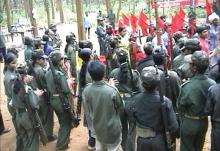
Chhattisgarh played second fiddle to neighbouring Andhra Pradesh in the lists of worst affected Maoist or Naxalite states in the year 2005. The state experienced an escalation of violence since the beginning of the euphemistically called Salva Zudoom (peace initiative) in June last year. Data on Maoist violence compiled by the State police revealed that in 2005, 130 villagers and 39 police personnel lost their lives, and 70 more were injured in Maoist attacks.
-
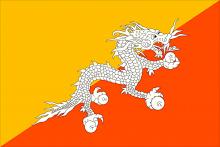
Bhutan’s King will hand over power to the elected government in 2008. The country's first-ever new Constitution, drafted in March 2005, aims to establish a two-party democracy after a century of absolute monarchy established with British help in 1907. Leaders of Bhutan’s political parties established in exile (in neighbouring India and Nepal) have welcomed King Jigme Singye Wangchuk’s announcement to abdicate the throne in 2008.
-
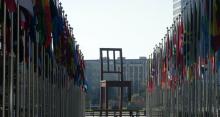
STATEMENT TO MEETING OF THE STATES PARTIES TO THE CONVENTION ON THE PROHIBITION OF THE DEVELOPMENT, PRODUCTION AND STOCKPILING OF BACTERIOLOGICAL (BIOLOGICAL) AND TOXIN WEAPONS AND ON THEIR DESTRUCTION, GENEVA, MONDAY, 5 DECEMBER 2005
Mr Chairman, Distinguished Representatives, Ladies and Gentlemen,
-
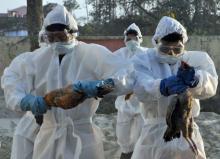
Recently ‘Bush and Co’ visited Asia to solve the nuclear riddle of North Korea. But along with discussions on nuclear issues at different forums they also attempted to ‘educate’ Asians on various other issues. President Bush had issued a carefully calibrated call for greater liberty throughout Asia, implicitly comparing the "free and democratic Chinese society" in Taiwan with repression in Mainland China. Talking in context of spread of Avian (Bird) Flu, Secretary of State Condoleezza Rice had also taken an indirect potshot at China.
-
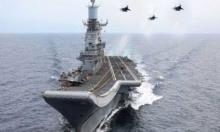
The Legal Committee of the International Maritime Organisation (IMO), a UN body on maritime issues, had called upon contracting states to work on two Protocols and introduce substantial amendments aimed at strengthening the Convention for the Suppression of Unlawful Acts against the Safety of Maritime Navigation also known as the SUA Convention. The SUA convention has been adopted by 126 countries representing 82 per cent of the world's merchant fleet. It provides for an appropriate response to the risks posed to maritime navigation by international terrorism.
-
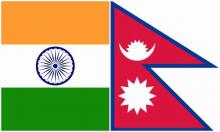
The recent announcements by Madhav Kumar Nepal, General Secretary of the Communist Party of Nepal – United Marxist Leninist (CPN-UML), that Maoists are willing to give up arms and join the mainstream necessitates neighbouring India to have a fresh look at the crisis. According to him the Maoists are ready to lay down their arms under UN supervision if there is a consensus for the election to a constituent assembly.
-
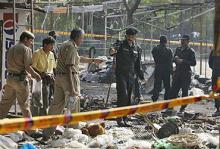
More than 60 people were killed and over 200 injured in one of the bloodiest-ever terrorist attacks that shook New Delhi with three synchronized explosions on October 29. The first blast occurred in the evening at 5.38 p.m. outside a Jewelers shop in the Paharganj area, close to Delhi’s main railway station. At 5.52 p.m., a bag was spotted inside a public transport bus in Govindpuri, which exploded when thrown out. A powerful explosion hit Sarojini Nagar’s crowded mini market at 5.56 p.m.
-
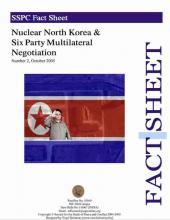
The Democratic People's Republic of Korea (DPRK), otherwise known to the world as North Korea has indicated its willingness to go to the fifth round of the six-party multilateral nuclear talks in Beijing in November 2005 as it had promised. However, the green signal came with a accusation that the United States has been using words and deeds contrary to the joint statement issued in September this year.
-

The deadly Japanese Encephalitis (JE) killed over twelve hundred people in less than four months in northern India and neighboring Nepal. The disease has gripped more than 25 districts of Uttar Pradesh, some parts of Bihar in India and Kailali, Banke, Bardiya districts of the Himalayan Kingdom. The situation has deteriorated due to an unexpected revival of monsoon in mid-September across north India, coupled with a shortfall of vaccines and life-saving drugs.
Paxton ported to drupal by DropThemes.in